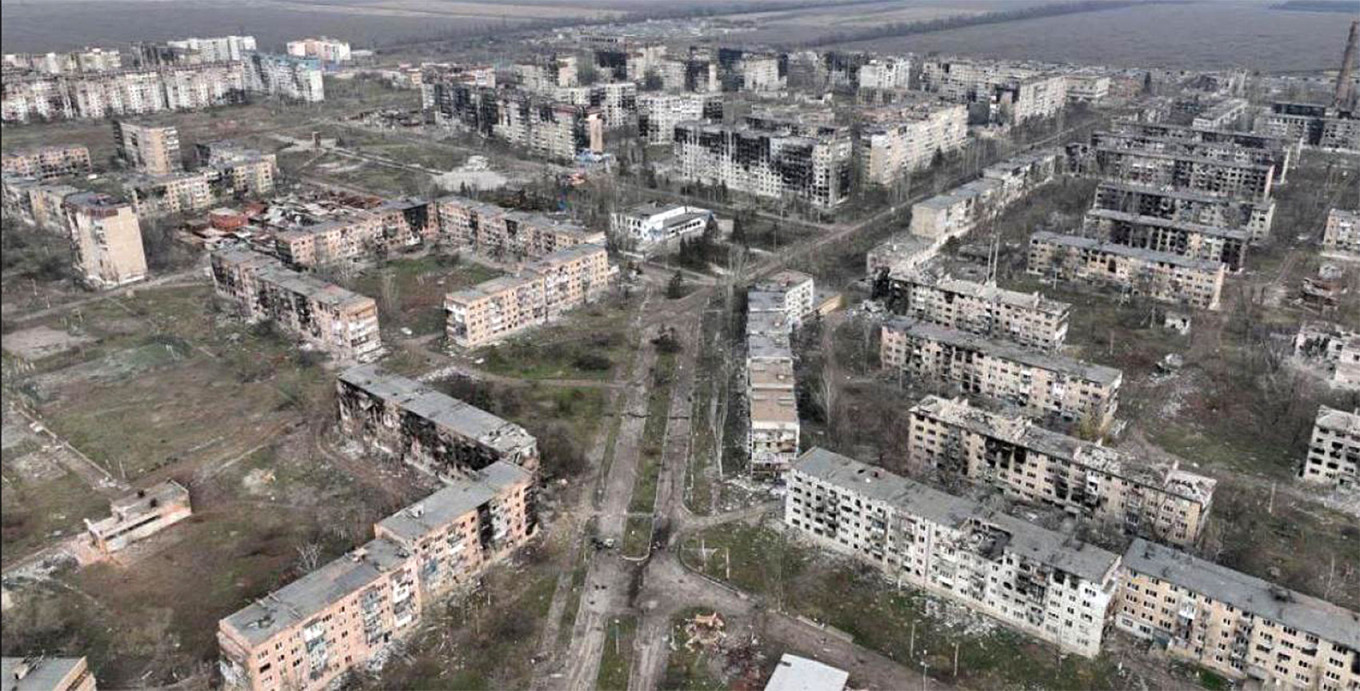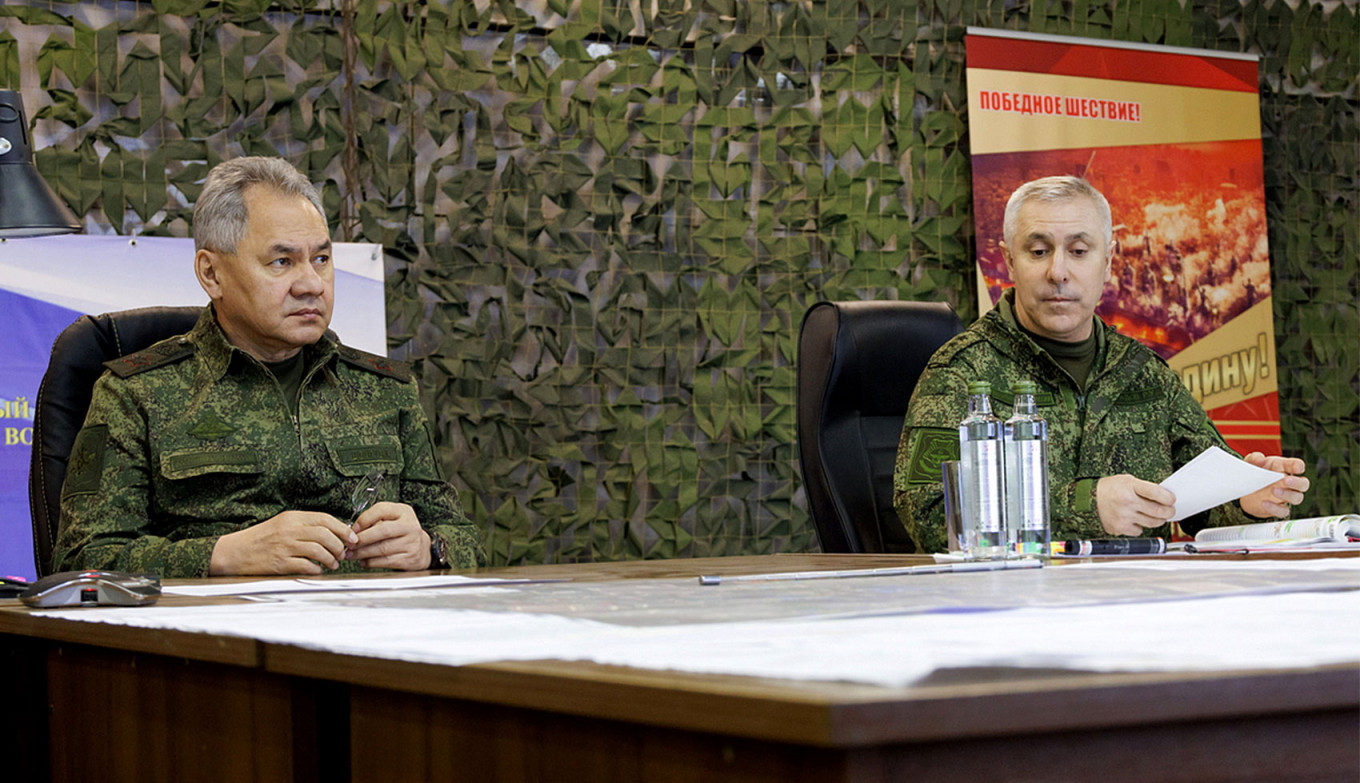General Rustam Muradov, a top Russian commander in Ukraine, has been dismissed in the wake of unsuccessful Russian assaults near the eastern Ukrainian town of Vuhledar, two Defense Ministry sources told The Moscow Times.
Russian attacks on the strategic coal-mining town in January and early February resulted in heavy losses of men and equipment. In one notorious incident, dozens of Russian tanks were reportedly destroyed after being ordered to advance in single-file because of a lack of demining equipment.
The removal of Muradov, a seasoned military commander with experience in Syria and the South Caucasus, offers a rare glimpse into the internal fallout from the Russian military’s failure to achieve any significant territorial gains in its monthslong offensive in eastern Ukraine’s Donbas region.
Rumors of Muradov’s dismissal have been circulating on pro-war Russian Telegram channels in recent days, but there has been no confirmation from officials.
Russia’s Defense Ministry did not immediately respond to a request for comment from The Moscow Times.
A source in Russia’s Eastern Military District and a source in the General Staff of the Russian Armed Forces, however, said that Muradov had been formally relieved of his command of the Eastern Military District. Both sources spoke anonymously as they were not authorized to publicly speak on the matter.
It is not known whether Muradov will be appointed to another military post, nor is it clear who will replace him.
One of the sources suggested that Muradov’s resignation was directly linked to the failures around Vuhledar.

At the height of the Vuhledar offensive in February, units commanded by Muradov lost 103 pieces of military equipment over three days, including 36 tanks, according to Dutch group Oryx, which uses open-source data to track Russia’s materiel losses.
At the same time, just 20 pieces of Ukrainian military equipment, including two tanks, were destroyed.
“Muradov had the Russian military repeatedly attacking in small mechanized formations through minefields, across open terrain. And they accomplished nothing in Vuhledar,” military analyst Michael Kofman told The Moscow Times.
Influential pro-war bloggers — and even soldiers serving under Muradov — have criticized his leadership and disrespect for soldiers’ lives.
Particularly high casualty rates were reported in the 55th Guards Naval Infantry Brigade and the 40th Naval Infantry Brigade near Vuhledar.
One surviving 55th Guards Naval Infantry Brigade marine told Russia’s 7×7 regional news website in February that losses were so severe that only eight men remained in one of the unit’s companies (at full strength, each company has about 100 men). “I wish I had been taken prisoner and never returned,” he was quoted by 7×7 as saying.
The Moscow Times’ source in the Eastern Military District linked Muradov’s removal to these high casualty levels.
“Muradov was suspended because he was a mad idiot who was able to… order soldiers to go to certain death. A lot of people complained about him,” the source said.

The reversals around Vuhledar were not the only recent military defeats suffered by troops under Muradov’s command, independent Russian media outlet iStories reported last week, citing a source in the General Staff.
The successful capture of Vuhledar would have allowed the Russian army to bypass a major fortified Ukrainian area near the city of Avdiivka, which could have, in turn, facilitated a broader Russian offensive in the Donbas.
Instead, Russia’s Armed Forces have remained bogged down in heavy fighting and appear unable to achieve any significant military breakthrough.
Fierce battles continue to rage in eastern Ukraine, particularly in the city of Bakhmut, over 100 kilometers to the northeast of Vuhledar.
Appointed as head of Russia’s Eastern Military District on Oct. 5, 2022, Muradov became one of President Vladimir Putin’s most senior commanders in Ukraine. He was previously deployed as a military adviser in Syria and spent over a year in charge of a Russian peacekeeping mission in the disputed South Caucasus region of Nagorno-Karabakh.
Russian Defense Minister Sergei Shoigu made a rare trip to the frontlines in Ukraine last month to visit Muradov and some of the troops under his command.
If confirmed, the dismissal of Muradov would not be the first time Putin has dismissed commanders in Ukraine after just a few months in the job.
Chief of the General Staff Valery Gerasimov replaced General Sergei Surovikin as the head of Russia’s force in Ukraine in January — just three months after Surovikin himself was appointed.
And Mikhail Teplinsky, the head of Russia’s paratroopers, was reportedly dismissed earlier this year after serving in that position for only six months.
But reshuffling top military commanders is unlikely to deliver any significant successes in Ukraine, according to analysts.
“There are core problems with force quality, and junior leadership, that cannot be easily resolved. It is not just a matter of changing tactics,” said Kofman.
“Looking at their limited offensive potential, I don’t think the Russian military can establish sufficient advantage on any front.”